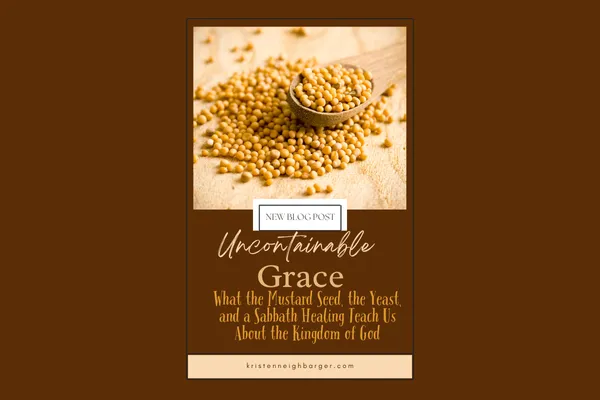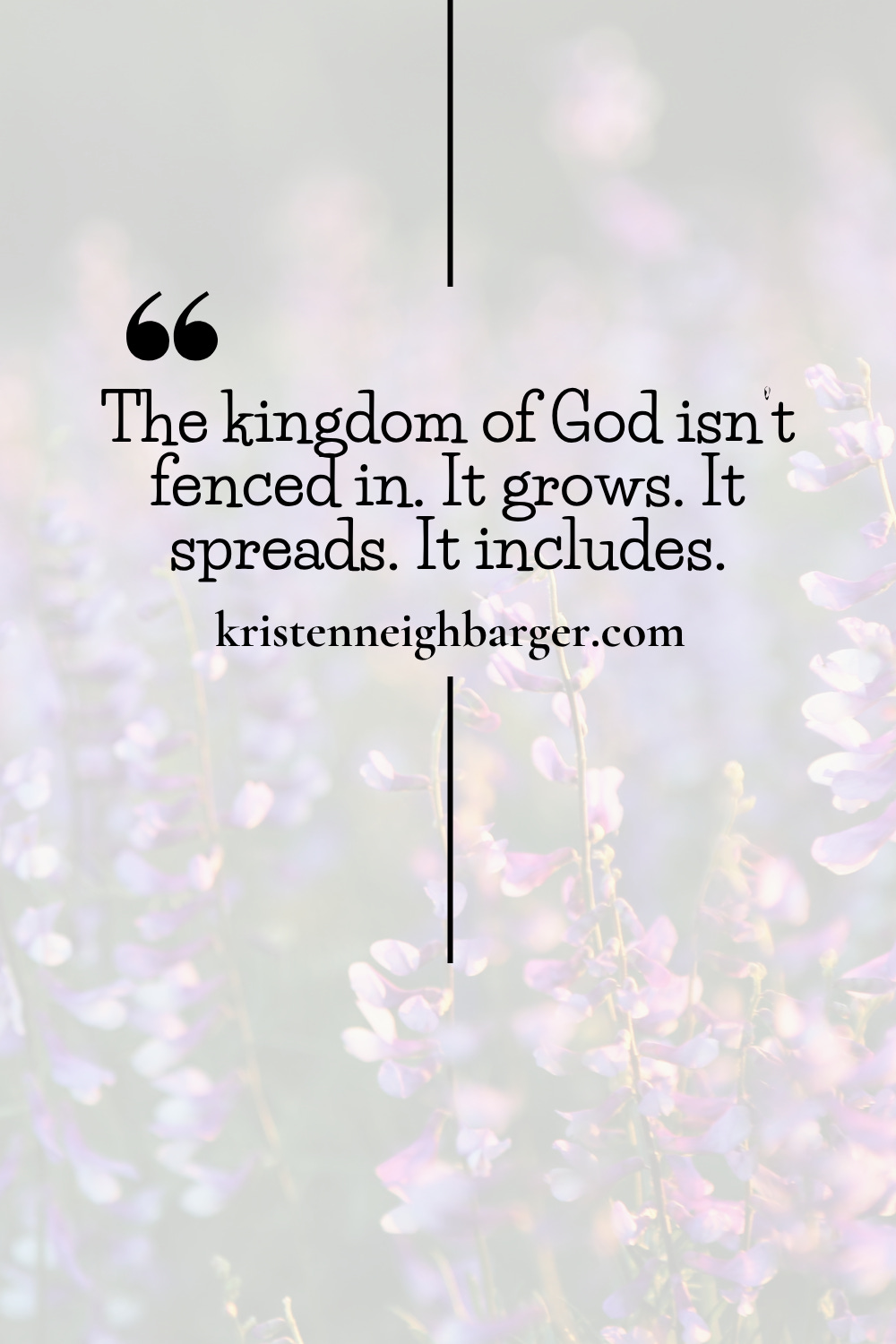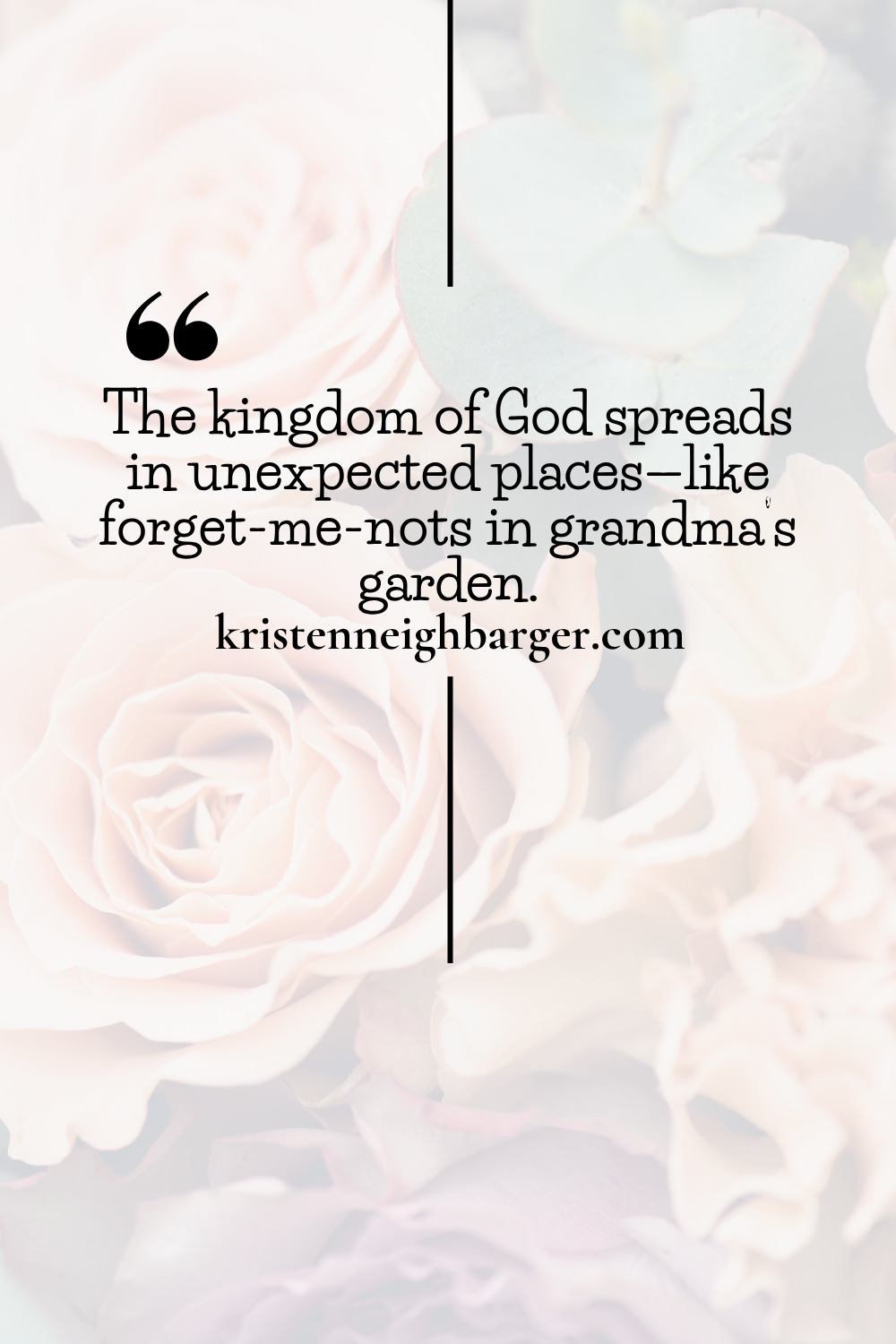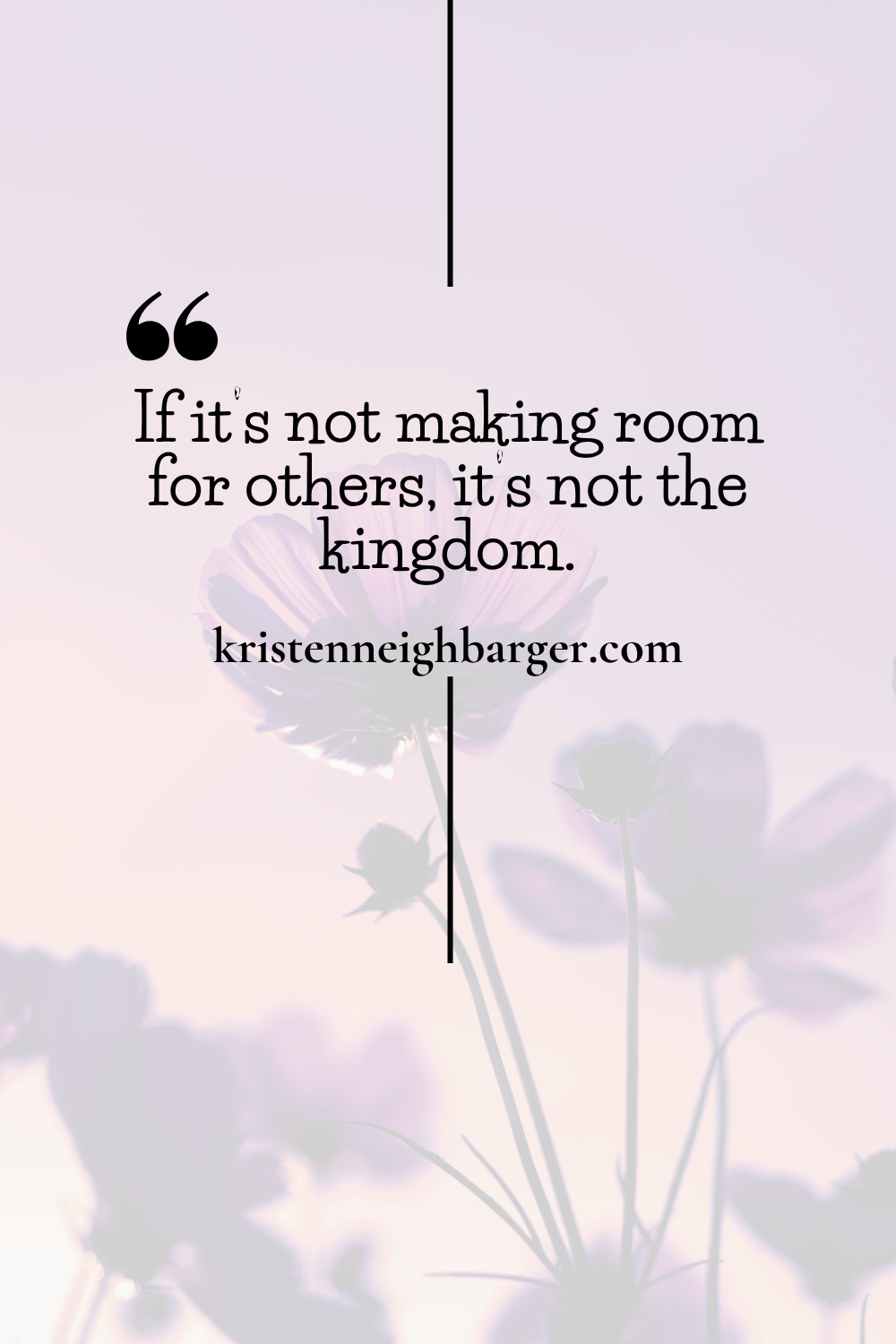
Uncontainable Grace: What the Mustard Seed, the Yeast, and a Sabbath Healing Teach Us About the Kingdom of God
For as long as I can remember, my Grandma Mary was a skilled gardener.
Every spring, she planted a garden larger than most people’s yards and tended the flower beds surrounding her farmhouse like a pro. But the year she turned 90, her once-vibrant beds were overrun with weeds.
I hate weeding. Like, eighth-circle-of-hell-level hate it.
But I couldn’t let her beds stay in that condition. So I begrudgingly committed to clearing the weeds and planting something new.
Once everything was prepped, I headed to Lowe’s and hit the clearance racks like the thrifty genius I am. I proudly returned with a haul of discount plants, including a four-pack of forget-me-nots.
Grandma was not impressed.
“Those things are awful,” she said, frowning. “They’ll take over everything if you don’t keep on top of them.”
Naturally, I thought she was being dramatic. They were cute little blue flowers—what harm could they do?
By the next spring, I had my answer. The forget-me-nots had spread like wildfire, swallowing up the beds with their tiny blooms. Grandma gave me that look and said, “Told you.”

Jesus, the Synagogue, and an Uncontainable Kingdom
In Luke 13, Jesus heals a bent-over woman on the Sabbath in the synagogue (vv. 10–17). When religious leaders rebuke Him for violating Sabbath law, Jesus exposes their hypocrisy, restoring the woman’s dignity and joyfully disrupting their rigid systems.
Then—without skipping a beat—He tells two parables:
“What is the kingdom of God like? It is like a mustard seed, which a man took and planted in his garden. It grew and became a tree, and the birds perched in its branches.”
“It is like yeast that a woman took and mixed into about sixty pounds of flour until it worked all through the dough.”
(Luke 13:18–21, NIV)
If you grew up in legalistic or fundamentalist spaces, you may have heard these parables framed as a call to evangelize everyone you meet. But when we zoom out and look at the context—especially the scene that unfolds just before Jesus tells these stories—a deeper meaning emerges.
A Revolutionary Message of Inclusion
Jesus had just healed a woman who had been excluded and overlooked. Then He says, This is what the kingdom of God is like.
These aren’t two disconnected teachings—they are one continuous message.
The healing?
It’s the mustard seed.The woman’s restoration?
It’s the yeast in the dough.
Jesus isn’t just talking about spiritual growth or personal piety. He’s redefining what the kingdom looks like—and who gets to be part of it.
In first-century Judaism, preserving religious and cultural identity meant drawing boundaries. It wasn’t exclusion for exclusion’s sake; it was protection. Obedience to the law and separation from outside influence were ways of surviving under Roman occupation and remaining faithful to God.
But Jesus comes along and says:
“The kingdom isn’t fenced in. It grows. It spreads. It includes.”
- Mustard Seed → invasive, wild, uncontainable
- Yeast → hidden, slow, transformative
These aren’t sanitized metaphors—they’re revolutionary. Jesus is describing a kingdom that refuses to stay within religious lines. A kingdom that includes the outsiders. A kingdom that upends hierarchies and rewrites who belongs.

When Inclusion Is Scandalous
This isn’t the only time Jesus flipped the script. In Luke 10, when asked, “Who is my neighbor?” Jesus told the story of the Good Samaritan—declaring that even the most despised outsiders were neighbors to be loved, not avoided.
Inclusion, for Jesus, wasn’t theoretical. It was embodied. Personal. Costly.
The kingdom of God wasn’t for the few. It was for the forgotten. It was forget-me-nots in grandma’s flower bed—beautiful, unexpected, and uncontrollably expansive.
What Seeds Are We Planting?
These parables invite us to examine our own faith communities. What kind of seeds are we sowing?
Are they seeds of grace, love, and radical welcome that spread beyond our comfort zones?
Or are they seeds of control, exclusion, and judgment that keep the doors locked to anyone who doesn’t look, think, or worship like us?
It’s easy to claim we’re inclusive. But when push comes to shove, are we more like Jesus—or more like the synagogue rulers who rebuked Him for healing?
The kingdom Jesus describes in Luke 13 is wild. It spreads in the most unexpected places. It grows in the margins. It can’t be managed, tamed, or gated off.
And that’s the good news.
Reflection Questions
What “boundaries” do I see in myself or my community that limit who is welcome in the kingdom of God?
Where in my life do I see the slow, unseen work of the kingdom—like yeast in dough?
Am I more committed to preserving tradition or to practicing transformation?
What would it look like to plant kingdom seeds of inclusion in my everyday life?

Call to Action
Want to live out this message in practical ways? This week, take one small step to extend grace where it’s least expected:
Invite someone into your life or church who’s often overlooked.
Speak up when you see exclusion in faith spaces.
Share this blog with someone who’s wrestling with what the kingdom of God really looks like.
Let the mustard seed grow. Let the yeast work. The kingdom is bigger—and more beautiful—than we imagined.
🌿 Looking for fresh inspiration and real connection with fellow writers?
The Hope Story Conference is happening January 29–31, 2026 in Charlotte, North Carolina, and it’s one of my favorite spaces for writers who want to grow in both craft and calling. With keynote speakers like Ruth Chou Simons and Ann Voskamp, you’ll leave refreshed, equipped, and reminded that your story truly matters.
It’s a weekend filled with practical workshops, meaningful community, and encouragement for every stage of the writing journey.
👉 Grab your ticket here: Hope Story Conference
(That’s my affiliate link—thank you for using it to support my work!)
